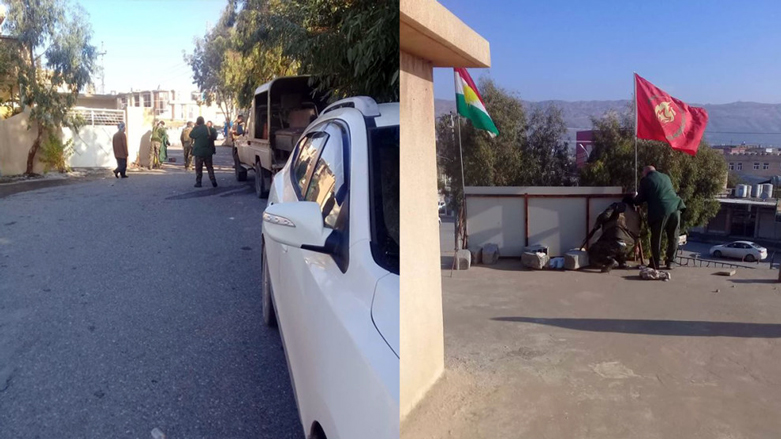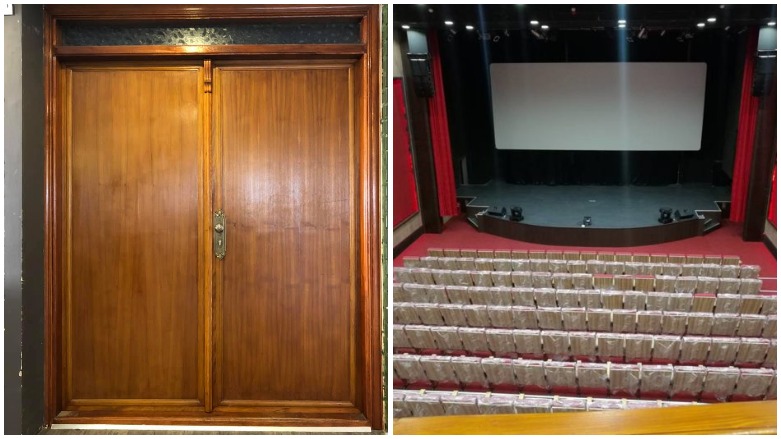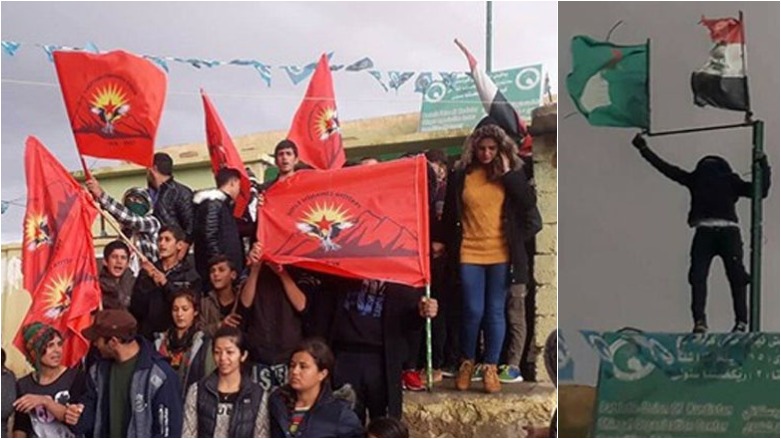After 24-hour deadline in Sulaimani, PKK-affiliate party offices closed in Koya, Kalar

ERBIL (Kurdistan 24) – Asayish (Security) on Wednesday closed the offices of the Freedom Movement of Kurdistan Society (Tavgari Azadi) in the cities of Koya and Kalar one day after security gave the party 24 hours to close its headquarters in Sulaimani.
Tavgari Azadi is a Kurdish party in the semi-autonomous Kurdistan Region known for its close ties to the outlawed Kurdistan Workers’ Party (PKK), which Turkey, the European Union, and the United States designate a “terrorist organization.”
“Today, Asayish forces in Koya entered our office on the basis that our party does not have an official license from the Interior Ministry to operate in the region,” Aso Mahmoud, the head Tavgari Azadi’s office in Koya, told Kurdistan 24 on Wednesday. “They told us that we have to close our office.”
“They said the order came from the Kurdistan Regional Government (KRG) and that any party without a license from the Interior Ministry cannot have an office and carry out political activities in the region,” Mahmoud added.
He mentioned that the security had also shut the party’s office in Kalar.
On Monday, security forces in Sulaimani surrounded the headquarters of Tavgari Azadi and gave those inside a 24-hour deadline to leave the premises.
“Although the 24-hour deadline already ended, the headquarters has not been closed yet,” Mahmoud noted.
According to Mahmoud, his party had officially applied for a license and requested permission from the government in the past, but they never received a response.
Meanwhile, the party’s co-chair, Mohammed Abdullah, told Kurdistan 24 on Tuesday that the security decision had come from the KRG’s Deputy Prime Minister Qubad Talabani, the son of the late leader of the Patriotic Union of Kurdistan (PUK), Jalal Talabani.
Abdullah Hassan, director of party registration department at the Interior Ministry, told Kurdistan 24 that according to Law No. 17 issued in the Kurdistan Parliament in 1993, no parties could operate and have political activities in the region without prior approved registration and licensing.
According to the Interior Ministry’s data, 36 parties have official permission and registration, and 20 more parties have requested a license from the ministry. Five of them were passed to the Council of Ministers for approval while the others are still under investigation.
Tavgari Azadi was established in 2014 by leading members of the then-dissolved Kurdistan Democratic Solution Party (PCDK), a political party under the umbrella organization of Kurdistan Communities Union (KCK) and considered by many to be the Kurdistan Region’s branch of the PKK.
Unlike other parties in the Kurdistan Region, during meetings and rallies, Tavgari Azadi members usually raise photos of Abdullah Ocalan, the jailed leader of the PKK. The PKK’s flag is also seen in its rallies and campaigns.
The PUK, the leading political force in Sulaimani who holds a significant authority over local Asayish and Peshmerga forces, has been at the heart of allegations of aid to the PKK. Turkey has also made similar claims against the Sulaimani-based Gorran (Change) Movement.
Tensions reached a climax in 2017 when Ankara expelled the PUK representative in the country.
Following the Kurdistan Region’s Sept. 25 independence referendum last year, Turkey halted all international flights to the semi-autonomous region. A few months later, in March 2018, Ankara decided to resume flights to the capital of Erbil but did not include Sulaimani and its airport.
Turkish officials, including Foreign Minister Mevlut Cavusoglu, accused both Gorran and the PUK – whose strongholds are in the Sulaimani province – of aiding the PKK.
Both Gorran and PUK officials rejected Turkey’s accusations.
Ankara’s complaints increased after the PKK released a video of its members arresting two “high-level” officials of Turkey’s National Intelligence Organization (MIT) in Sulaimani.
After Turkey shut down the PUK representative office in Ankara, the party’s envoy warned the PUK leadership of perceived ties with the PKK.
“Now, the PUK tries to ease relations with Turkey by distancing itself from the PKK and hence ordered the closure of the Tavgari Azadi offices in its stronghold areas as a first step,” Khalid Sabri, a Kurdish political analyst, explained.
From October 2017 until now, Turkey has halted all its flights to Sulaimani despite city officials’ repeated attempts to resume flights.
Editing by Karzan Sulaivany



.jpg)